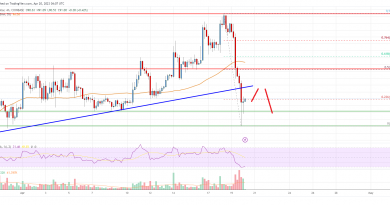Project Ubu: The Ambitious South African Cryptocurrency
Universal Basic Income (UBI) is a very popular topic at the moment. Countries like Finland and the Netherlands have conducted exploratory initiatives on the topic, with small-scale experiments to see how it fares. UBI is a concept that is increasingly advocated by those who want to streamline the social welfare system while simultaneously future-proofing it for a world where many jobs are done by robots or artificial intelligence. UBI involves giving each citizen the same fixed regular payment, regardless of whether they have other income or not.
Of course, another very popular topic is blockchain technology. Blockchain tech aids in transparency, automation (with smart contracts), and investment management. So it is perhaps inevitable that someone would have the bright idea to combine the two. This is what Ubu, a South African blockchain project, seeks to do.
The project has the ambitious goal of “creating a cryptocurrency that unlocks dormant, inefficiently allocated and unrealized resources to create commercial and social value.” The objective is noble, but when it comes to what these “dormant, inefficiently allocated and unrealized resources” are, the concept becomes a little more complicated.
In terms of use cases and what the network would actually do, a good way to put it would be that a currency with a social goal can be a good platform for businesses to donate to those in need while also benefitting from network effects. In practice, the Ubu team have several use cases outlined:
- Accept UBUs for distressed or expiring inventory, recouping some input costs.
- Leverage zero margin cost inventory with UBUs to attract and retain more customers.
- Exchange dormant loyalty points for UBUs to diminish balance sheet liability.
- Geo-targeted promotions using UBUs as a pull mechanism: UBU offers a free alternative to Facebook & Google by directly targeting citizens with UBUs in their wallets.
- UBUcore offers to bond accumulated UBUs in tranches so that early adopters can preserve them at a low value and realize a healthy return as the unit’s value increases.
- Project UBU is a ready-made acquisition and retention programme that requires no setup costs.
- UBUs provide donor organizations with a direct, transparent, auditable and hugely more efficient method of reaching their beneficiaries.
You are probably getting the picture of what the Ubu project seeks to achieve. It would be a supplementary currency which is used to help charity and also connect socially-conscious businesses with new customers.
This will all be underpinned by the UBX token/currency, which, as it appreciates in value and more of are mined, will represent a store of value which will be given to every Ubu wallet holder – hence the tie in with UBI. It is certainly an innovative approach to leveraging the nature of cryptocurrency for a social good, in this case, welfare.
The UBUCore is the actual legal entity which runs the whole ecosystem. The UBU chain itself is a private Ethereum chain, and tokens for the ecosystem can be bought in ETH and BTC. At the moment, the project is being put on trial in South Africa.
The entire ecosystem is based on the benefits of network effects. If many businesses and users are on the platform, the natural potential of blockchain technology will lead to at least some benefit that does not currently exist in the existing economy. As a spokesperson for the Ubu project said: “It is a chicken and egg situation in the early stages – the value proposition for UBU citizens is not much if they can’t spend their UBUs. In turn, vendors require numbers of UBU citizens and the ability to realize value out of the UBUs they receive.”
Another economic benefit of the setup is that when users sign up they will generate data in the system, and this data can be used as an information resource by participating companies. While internet users are quite wary of companies using data on their preferences and identities, it would be likely that if they were receiving money directly for taking part that this would be less of a concern. Also, it would not be a major revenue source for the platform: “While this is not a goal of the Ubu Project, but as a byproduct, it does offer another significant long-term investor benefit,” as the company said.
The initial goal of the project is to make payments to users of the amount of the global poverty line (around $2 per day) daily. This could be a real boon to those in developing countries who are constrained in their choices by day-to-day struggles. As the company said: “Its purpose is to apportion value to all humans, whether economically active or not, so that those trapped in poverty are provided access to the economy where they can create wealth.”
In terms of technological challenges, the design of the UBU wallet is to be light and easy-to-use. It incorporates biometric identification to add security and verifiability.
The concept is quite novel, and the team has been working on the project for the past 3 years. The founder, Dudley Edward Baylis, has worked on third-sector and community-focussed projects for the past 20 years and also has experience on large projects (such as in the renewable energy sector) for Bridge Capital, a major South African M&A and financial advisory firm.
Chief executive Justin McCarthy has been a C-level executive for over 25 years. The company boasts other experienced managers that should add to investor confidence, including the founders of Sovtech and Sharebit. The overall project has received backing from the South African government.
The project is being unfolded by first releasing UBX tokens which are similar to the tokens in other ICOs. These are basically shares in the platform, and next year the UBU tokens (which are closely related to the UBX tokens) will be released. The UBU tokens will be the currency that the end-users will transact with.
Source: Read Full Article


